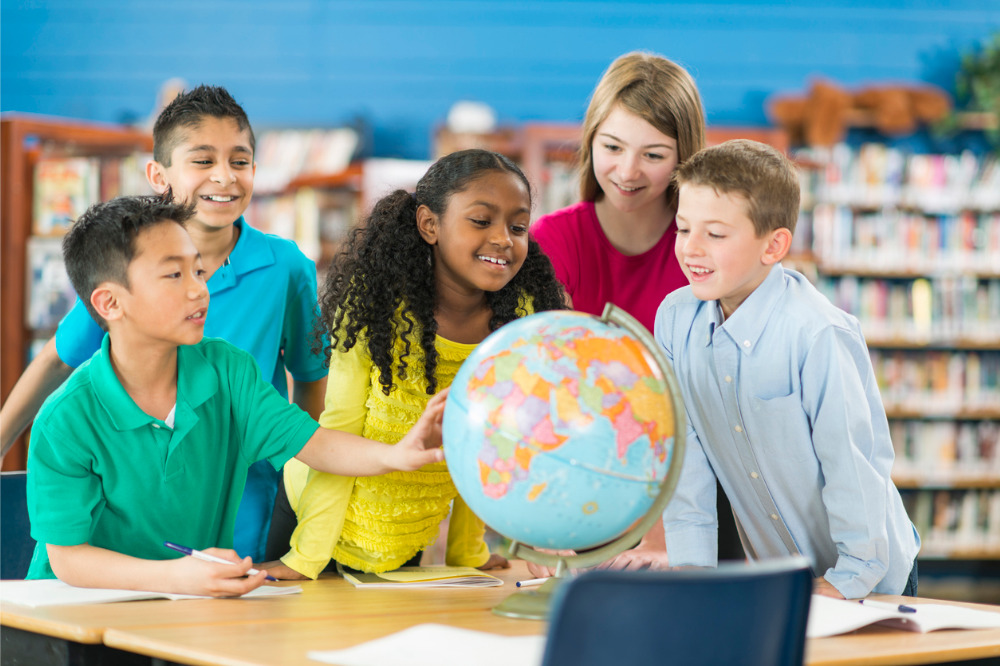
Almost everywhere one looks, monumental change is happening.
Whether it is the profound impacts of climate change, the emergence of a new Cold War, dizzying advancements in AI and quantum computing or the pandemic continuing to transform the way people live, learn and work, there’s no question that the world is in a state of dramatic flux.
For young people, trying to make sense of these dramatic changes can be extremely stressful and anxiety-inducing. For this reason, some education experts say schools and communities must ensure that young people are equipped with the skills to calmly and thoughtfully navigate change, and adapt to it.
Are we really listening to young people?
Dr Sonja Kuzich is a senior lecturer in the School of Education, Curtin University, who researches in Education for Sustainability (EfS) and teaches a Master of Education course: Education for a Future.
She says Educating for a Future is about preparing young for uncertain and precarious futures through developing “indispensable skills for planetary survival”.
“Whilst we are all affected by this panoply of globalised crises, it is our young that will be left to deal with the mess. They sense the urgency as they have been voicing their concerns and anxieties about our collective future – we need to start listening,” Dr Kuzich told The Educator.
“As young people grow into adults, our young will be transitioning into an existence on this planet that is markedly different from the one their parents and grandparents experienced. They know, and are telling us all, that we need to be, to think, to act differently, and find ways to work with each other in synergy.”
The pillars of a truly future-focussed education system
Dr Kuzich said that to successfully navigate their future on this planet, young will need an education that supports their ability to think deeply, relationally, and ethically, understand the complexity of systems, and work with, at times, contradictory and incomplete information to create a new possible future.
“The indispensable skills for planetary survival are those that help us see, and understand, the interconnectedness of glocal [global-local] problems, and act in ways that address that complexity,” she said.
“Taking Greta Thunberg’s lead, we need to educate our young ‘as if our house is on fire’ – we cannot wait any longer – the warning signs are all there.”
Dr Kuzich said that if Australia’s education system is serious about helping prepare students for the future, education policymakers need to be prepared to make the fundamental shifts and accelerations that are required.
“We cannot wait for them to almost reach adulthood before the necessary skills are developed,” she said.
“A future focussed education system is one that recognises that even the youngest students show concern and care about their world and have the capacity to develop action competence to address these concerns in their sphere of influence.”
Dr Kuzich said a truly future-focussed education system privileges student/agency and doesn’t “bind them within a narrow, restricted set of assessment parameters that have limited usefulness beyond the classroom walls”.
“The indispensable skills for planetary survival are ones that prepare our young for uncertain and precarious futures,” she said.
“We do not know with certainty what we will face so the kind of learning that is most useful is one that is not just rooted in current knowledge, but rather one that enables the learner to apply knowledge to address real-world issues.”
Dr Kuzich said such a system must also foster the development of higher-order thinking skills from the early years of schooling.
“By doing so students would develop abilities such as being able to draw upon multiple sources of knowledge simultaneously, critical literacy and numeracy, problem-solving, innovation, creative thinking, and collaboration which are fundamental to developing ethical and respectful interspecies solutions for the complex, ‘wicked’ problems we are increasingly facing.”


